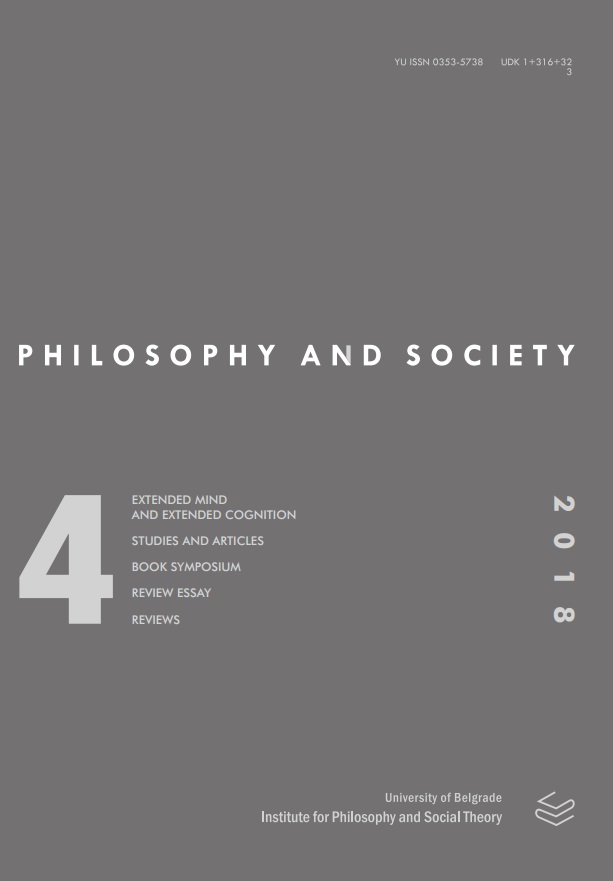Replies: Autonomy and Human Dignity. A Reassessment of Kant’s Political Legacy. Human Rights, Peace, Progress
Replies: Autonomy and Human Dignity. A Reassessment of Kant’s Political Legacy. Human Rights, Peace, Progress
Author(s): Luigi CarantiSubject(s): Ethics / Practical Philosophy, Political Philosophy
Published by: Institut za filozofiju i društvenu teoriju
Keywords: morality; autonomy; dignity; human rights; Kant; mental impairment; speciesism
Summary/Abstract: The paper centers on some problematic theses of my book Kant’s Political Legacy. Human Rights, Peace, Progress (UWP 2017). This reconsideration is occasioned partly by comments I received and partly by my own process of self-criticism. I focus on the point that commentators have mainly criticized, that is, the link I suggest between human dignity and our capacity for moral behavior, or autonomy. The first part recalls the basic features of my Kant-inspired and yet in many regards anti-Kantian account of the relation between dignity and autonomy and replies to some criticisms received from orthodox Kantians. The second part is strictly connected to the first because it deals with the reasons we have to believe that we are autonomous. While in the book I sketched Kant’s own reasons for the ‘reality of freedom,’ as he puts it, I focus now on Bojan Kovačević’s suggestion to look at characters in novels written by artistic geniuses (in particular Leo Tolstoy) to find indirect evidence in favor of autonomy. This allows me to reflect on the kind of evidence one can legitimately expect in the proof at issue. Thirdly, I reply to a classical objection, ignored in the book, that impacts with equal force Kant’s ethics and my own position. The problem concerns people with temporary or permanent impairment of rational capacities. If I let human dignity depend on our capacity for autonomous behavior, am I committed to the counterintuitive (and rather devastating) conclusion that children or people suffering from momentary or irreversible loss of rational capacity, and a fortiori of autonomy, do not have dignity and therefore do not deserve to be protected by human rights?
Journal: Filozofija i društvo
- Issue Year: 29/2018
- Issue No: 4
- Page Range: 598-612
- Page Count: 15
- Language: English

